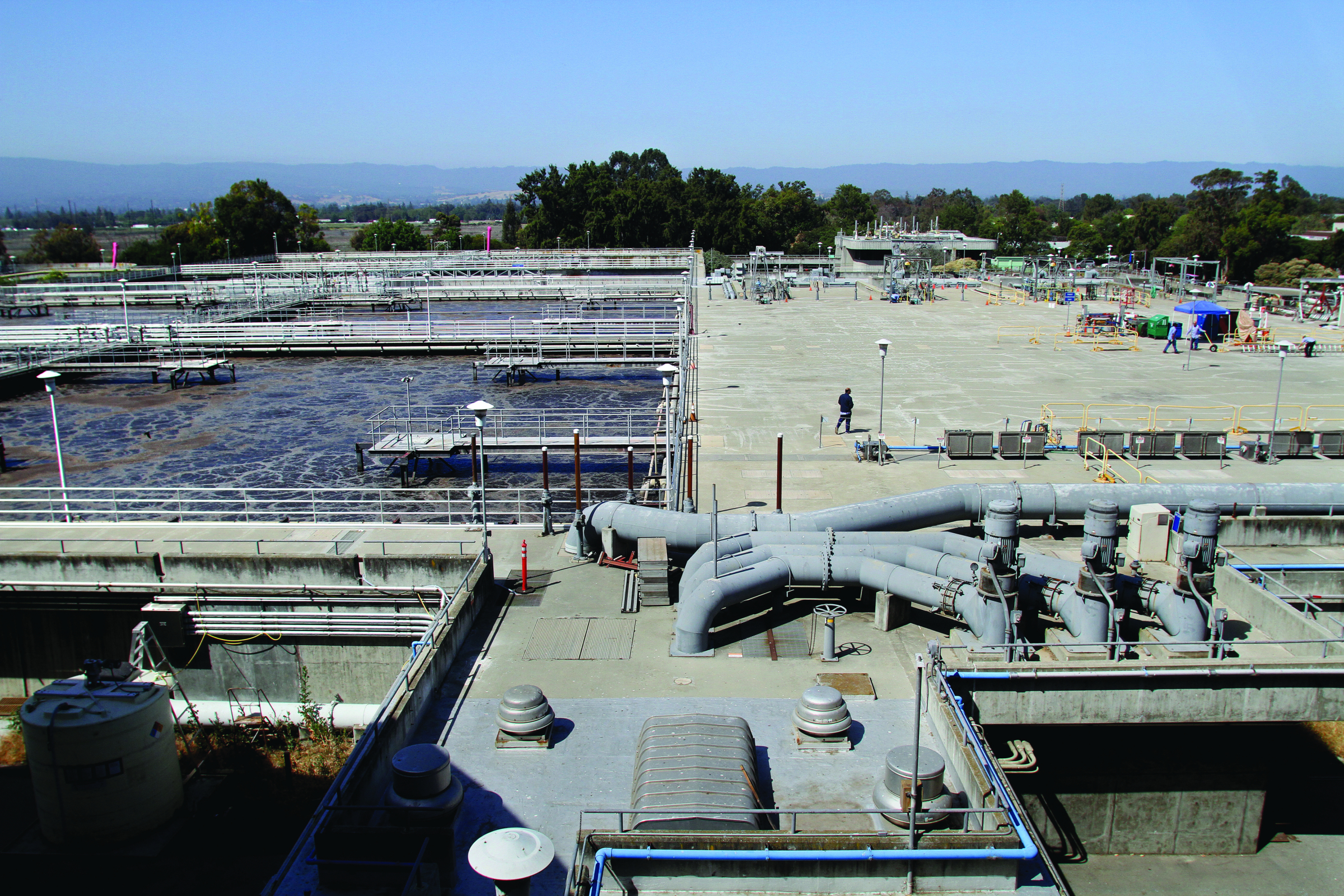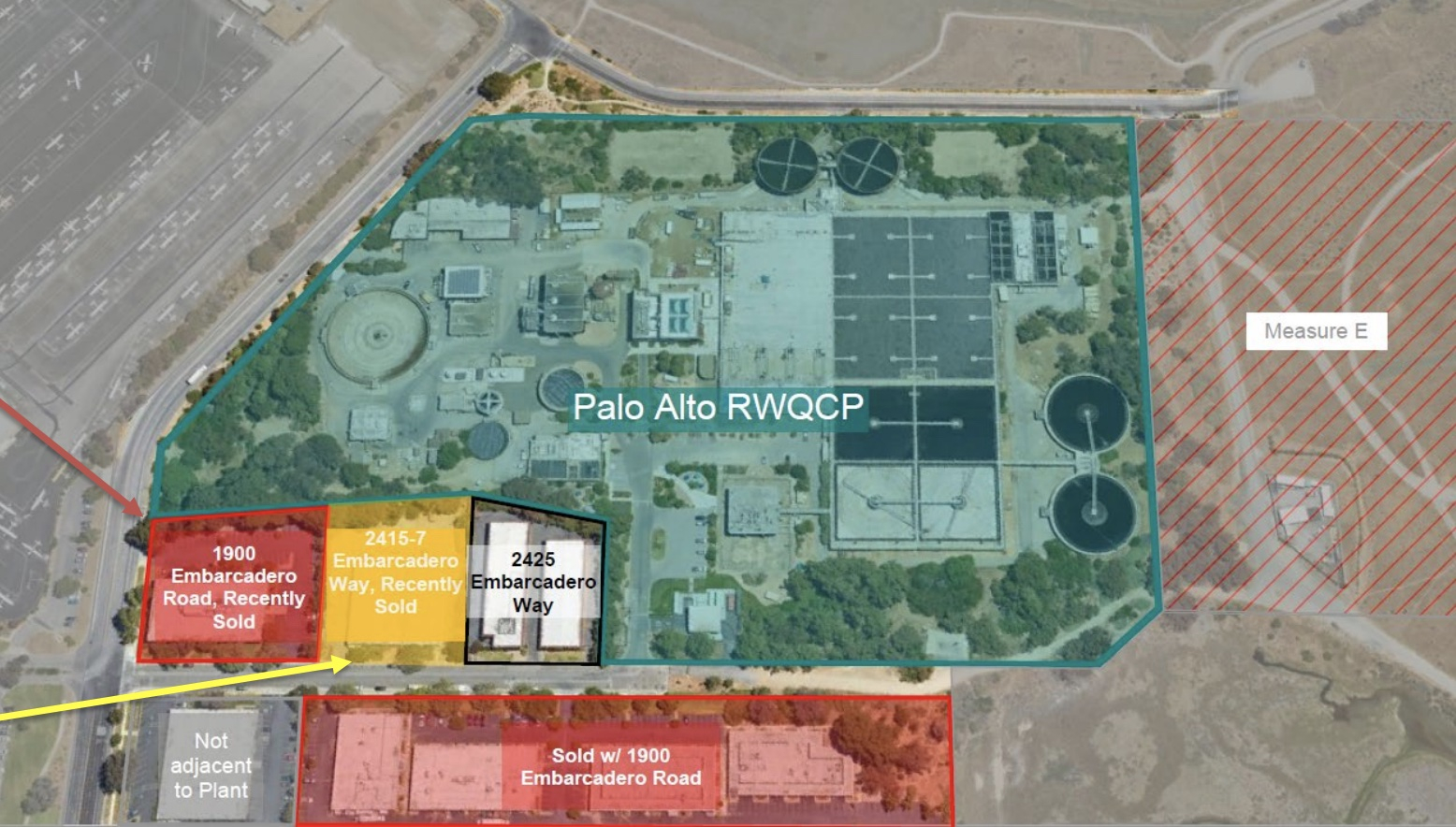Concerned about cramped conditions at the Regional Water Quality Control Plant, Palo Alto authorized staff on Monday, Aug. 21, to explore purchasing land next to the wastewater facility on Embarcadero Road.
The plant, which serves Palo Alto, Mountain View, Los Altos, Los Altos Hills, Stanford University and the East Palo Alto Sanitary District, is already in the midst of a massive renovation. The city and its partners are investing about $300 million to upgrade the plant's headworks building, its electrical system and its secondary treatment system.
Public Works staff are also looking to build a new laboratory building that would consolidate operations that are currently scattered around the industrial campus.
At the same time, the city is exploring possible use of a 10-acre Baylands site near the plant for a new industrial facility – a project that has divided local environmentalists.
Under the most recent compromise between those who want to see new technology at the site and those who want the city not to build any more industrial facilities in the Baylands, the council has authorized staff to explore a waste-to-energy facility that would largely remain within the footprint of the existing plant but that may have some portion intrude on the 10-acre area that was "undedicated" by voters as part of Measure E in 2011.
The council's direction in April to focus on the plant site for future improvements adds further pressure to find space.
With 25 acres, the Regional Water Quality Control Plant is the sixth largest wastewater treatment plant in the Bay Area, said Karin North, assistant director of Public Works. It serves about 220,000 customers, which is also roughly equivalent to the number served by Silicon Valley Clean Water in Redwood City, which has 45 acres of space. About half of that is undeveloped.
San Jose's wastewater plant, which is by far the largest in the region, serves about 1.5 million people and has about 1,600 acres of space.
Options for growth in Palo Alto are limited. The plant is surrounded by the Baylands, Byxbee Park, an office park and the Palo Alto Airport, where Public Works is already leasing space for construction staging, North said.
The city is also leasing space at 1900 Embarcadero Road, where city staff occupy close to a quarter of the building. North said she is among the employees who work there.
"Right now, we're so space limited, we're struggling and kind of scratching our heads as to where we're going to put the next upgrade when there is a new regulation coming down the pipeline," North said.
"I view this as future-proofing our facility for hopefully 50 years. A couple of acres isn't going to get us there but it'll get us a little bit closer than no acres," North said.
If things go as planned and hoped, the city would purchase the roughly 1.25-acre property at 1900 Embarcadero Rpad – land that was last was sold in 2020 as part of a package of six parcels for $72.7 million. It's now owned by the investment firm BioScience Property Investment.
In addition, the city is hoping to pursue an adjacent site at 2415 Embarcadero Way, which was last sold in April for $4.8 million and is now owned by RedCo Development.
Public Works Director Brad Eggleston said staff believes the recent downturn in the local office market may make the sale more feasible.
"We've been in the process of trying to plan, but given the current real estate market for office space, we see that as a real opportunity now to maybe move and advance to secure some additional land and flexibility," Eggleston told the council.
The council agreed that the city should move ahead with further exploration of these two properties as well as a third, at 2425 Embarcadero Road, which staff has not yet explored. Council member Pat Burt said the rebuild of the aged plant is "overdue" and made the motion authorizing staff to explore the purchase and – if that fails – a long-term lease of these two properties and possibly a third.
The council unanimously supported the motion and directed staff to return with a plan for funding the purchase. The staff is also tasked with doing a preliminary analysis of how the Measure E site could be used. A more in-depth exploration of the site's potential will be included in a long-term plan for the wastewater plant, which the city is now embarking on.
Mayor Lydia Kou pointed to the many ongoing construction projects at the plant – as well as future capital improvements – and concurred with staff that it would be wise to purchase land next to the plant.
"I also believe that it is actually a benefit for the city to have ownership of certain pieces of land for its own use," Kou said.




Comments